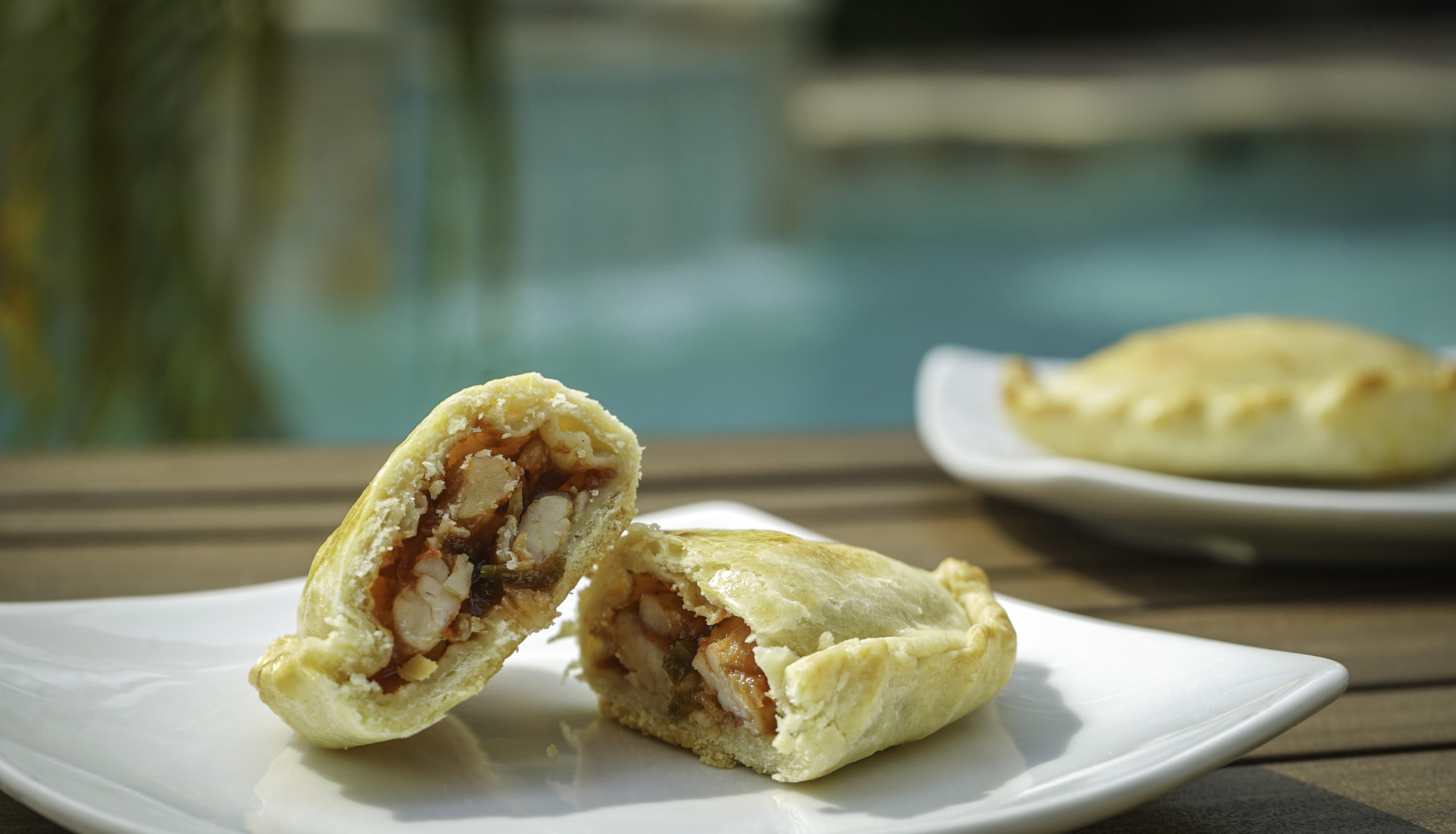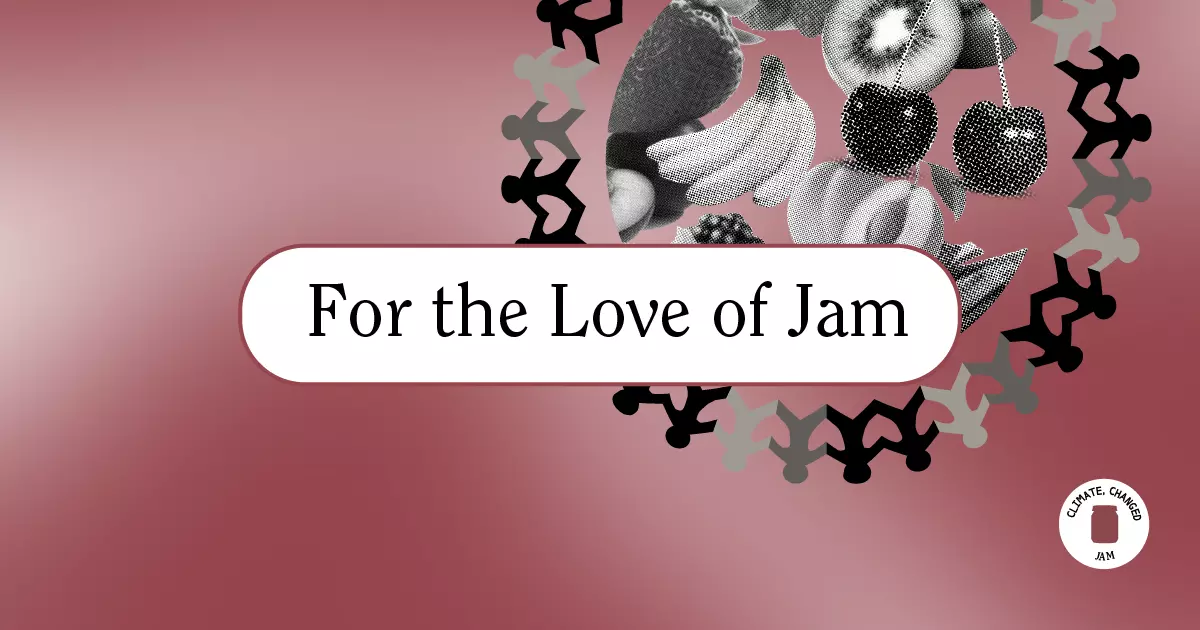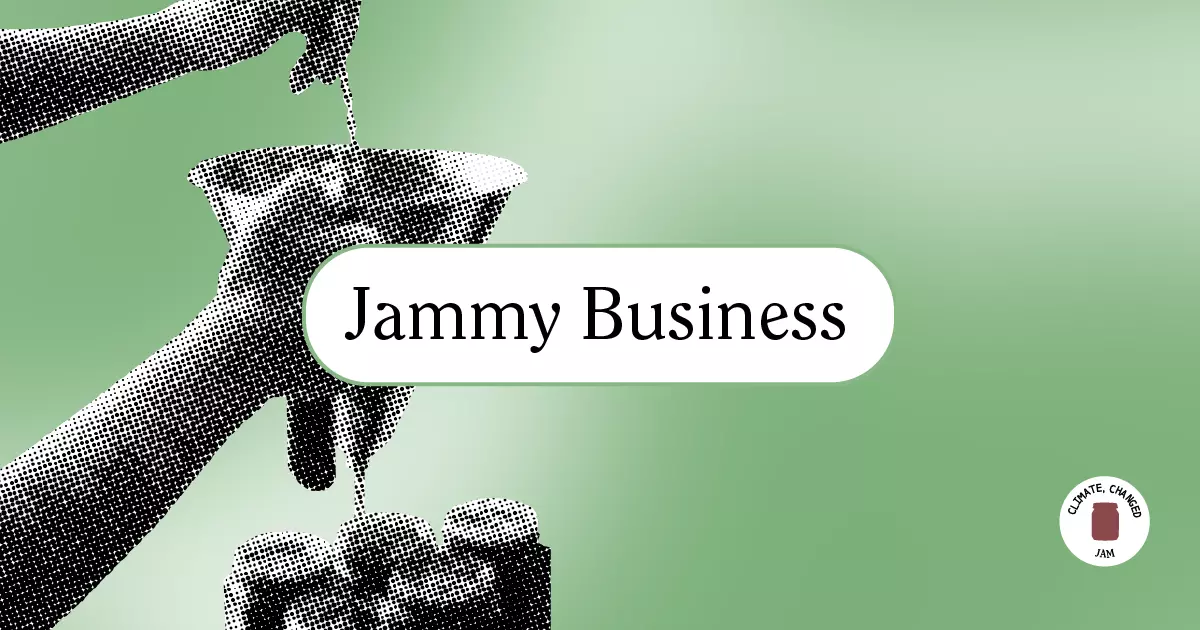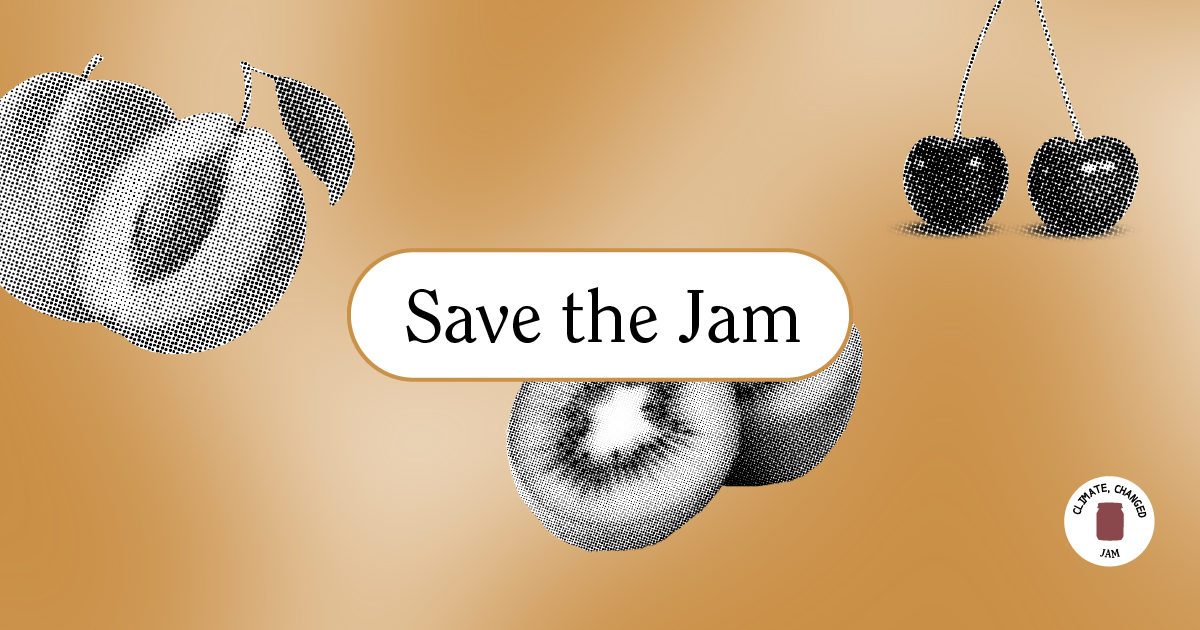INTERVIEW
Rochelle Oliver Celebrates Caribbean Food on Its Own Terms
BY MEREDITH PONG
OCTOBER 8, 2020

PHOTO: ANDRE’ LAFLEUR, ISLAND AND SPICE
As managing editor of Island and Spice Magazine, Rochelle Oliver uplifts the food of the Carribean diaspora. Island and Spice has published stories ranging from the disappearance of pink guavas to the dietary lifestyle of I-tal cuisine and the Rastafarian faith. Rochelle was previously a contributing reporter and breaking news editor at The New York Times, with past experience at The Miami Herald and the Sun Sentinel.
We chat with Rochelle about the impetus for Island and Spice’s creation, following mixed reactions to her viral New York Times story on Jamaican beef patties. She reflects on her experience with racism in food media and the importance of presenting Caribbean food from its own perspective. [Interview has been edited for length and clarity.]
Follow her on Twitter and Instagram.
How and why did you create Island & Spice?
You know it’s funny because the truth is, I wrote a story for the NYTimes to Sam Sifton, the food editor at the time. They accepted it. I was an editor at the time. I ended up pitching this piece about how Jamaican businesses were pushing to make the beef patties. One guy even said, he’s passed away now, but he wanted the beef patty to be like the next burger. He wants everyone in America to be eating the beef patty. I ended up going back to Jamaica to look at the first family to advertise the beef patty. It was great to be able to do that whole story arc about the roots of Jamaica to the middle of America.
To be honest, the story was really successful on the site, it ran on the front page of the Food section. There was also this viral backlash, which wasn’t unexpected, but it was people feeling like the beef patty was being appropriated. That spiraled into conversations about…I think people were just scared that their food was going to be taken from them. It was not what I expected about an article about beef patties. Especially when the voices were all Caribbean business owners. They were the ones driving the conversation and this was their dream coming to life.
After the story went viral, Sam Sifton said, “Rochelle, I want you to write about Caribbean food for us.” To be honest, I did not know what that meant. I did not know why he would want that. It was a bit of a gut check for me because growing up, I was not used to people wanting to hear my stories. My stories were always a little too ethnic.
I told him I needed to do some research. He gave me another piece to write about the history of jerk chicken. I spent an entire year doing research to really understand what it means to write about Caribbean food. I felt that it would have been wrong of me, as a Caribbean person, to write about stereotypical stories, that were expected of me, like the in the box narrative of jerk chicken. To help create a soul food narrative of Caribbean food that does not represent the wide range of the cuisine.
By the time I got to a year’s worth of research, I collected so many stories. I realized I needed a place to write about food where I didn’t need to explain or defend where the food comes from and why it’s a good story. The only way to get that done is if I created a space for that to happen. I built a platform for people to actually see how Caribbean food really looks from its own perspective and not from a perspective of trying to explain what it really is on a mainstream platform.
What is your dream for Island & Spice?
Right now, we’re hosting a food trivia show. It’s something that has come from the pandemic for audiences. Immediately, we are dropping the new essay series which is about Caribbean Americans who’s food legacies have been interrupted.
At a high level, I would love to see I&S in every state of America. There are only 2 types of people in the world. People who have been to the Caribbean or people who are going to be going to the Caribbean. Everyone can relate to the experience of Caribbean food travel and the Caribbean story is very much the American story. We have 2nd, 3rd and 4th generations all over the U.S. We bring that experience and show honest stories of the Caribbean with the world.
What are your thoughts on the backlash on different food media outlets?
I think it’s a great moment where a lot of the inequities in media and the world are being exposed. The idea that food media was somewhat insulated from systematic racism was out of pure ignorance. People have been speaking up regularly about issues where people felt their cultures were being misrepresented in the food media space. We can’t just wake up today and say, “I can’t believe this was happening”. The problem is much bigger than the position. In order for people in positions to wield their power without fear, there has to be a much larger system in place. That is my belief.
And that is my belief about anything, with the police system, with the political system. You can’t go rogue and separate people from their rights without knowing that it’s okay to do so. You are shielded from a sort of backlash, but in fact likely encouraged. I think what is being exposed is very hurtful to people like me and may people of color in food media. Racism and the racism that we’re seeing, that’s being exposed, was co-opted in spaces where people of color weren’t in.
People can ask me, “What kind of racism did you experience?” That question is fundamentally flawed. In order for someone to say something to my face, they had to have said it first in circles or spaces where I wasn’t. The majority of racism happens without women or people of color in the room. The majority of discrimination happens in spaces where we’re not. In order for this to change, the entire structure from the very top on down to the writer must change. It’s not just the editor in charge, it’s the publishers, advertisers, the audiences and who they cover. In order to move forward, the entire chain of command and everything that supports that chain of command needs to be changed. Not just because they want more people of color in the room, but they need people who are educated, informed, and experienced in the field. For some reason, I think there’s a belief for whatever reason that people of color or women, and it’s kind of both, can bring their race or their experience, but not both into the room. You can bring in your diversity account or your experience. I’m happy we’re moving in a direction of exposure, but it’s barely the beginning of what needs to take place.
In the past few years, we’ve seen a growing interest in food science and food journalism from Netflix shows and thriving food media outlets. People are more curious to learn about food systems and how food gets to their table, and the stories behind foods, rather than just recipes. Where do you think we are now?
Yes. I think the pandemic put everyone in survival mode. It also made everyone very aware of food stability in this country. People are realizing this is why you buy local. Now, you can go to a grocery store and an item might not be there. Why does that happen? It’s a great place when as Americans we start asking Why? We simply forgot – because there’s so much privilege in not being able to ask that question.
Share a recipe you love right now.
Haitian Tomato and Avocado Salad
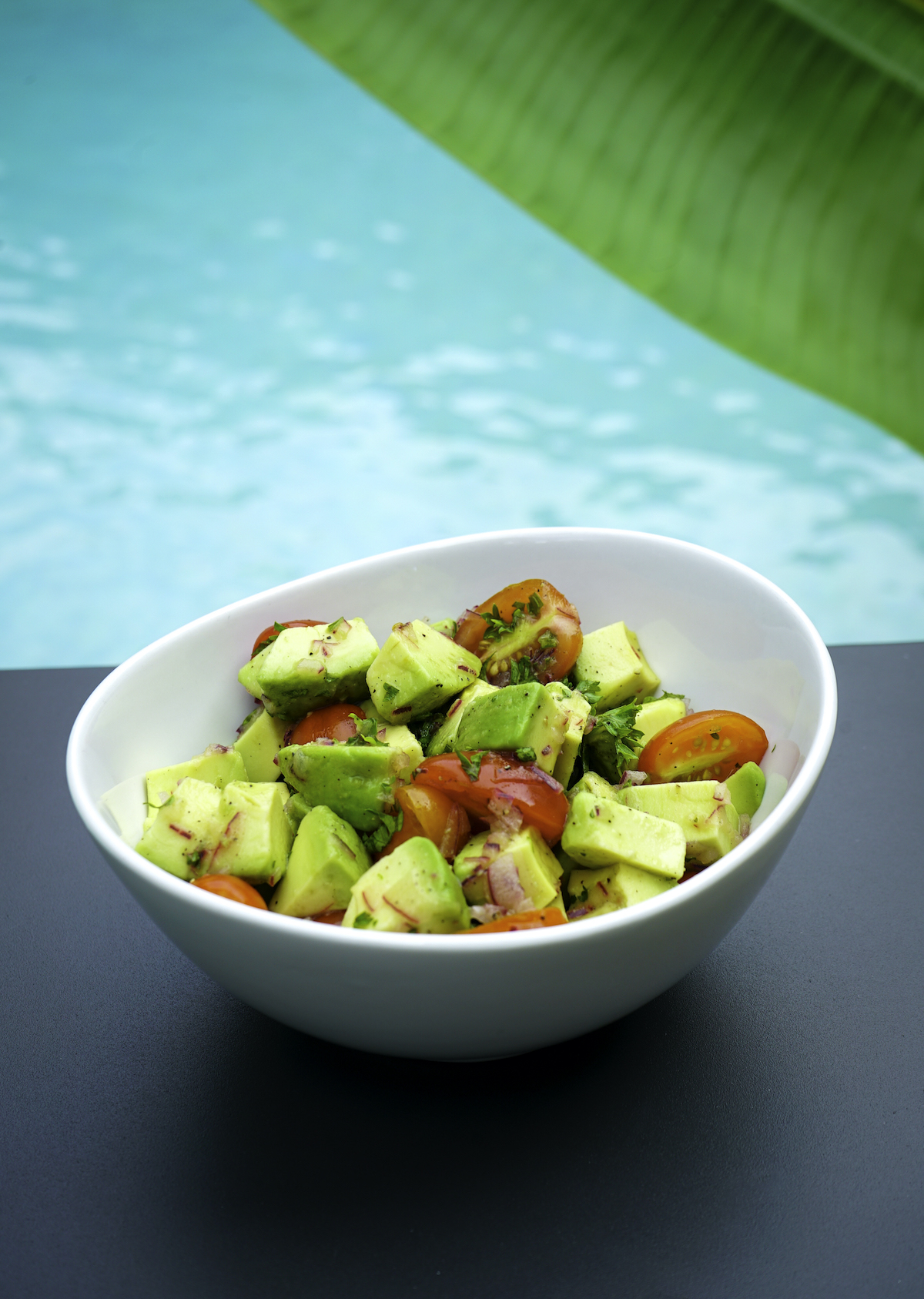
PHOTO: ISLAND AND SPICE
There’s a Haitian tomato and avocado salad that is honestly the BEST THING EVER. It is just so yummy. The chef, Cynthia, recommended this recipe – I saw it in her cookbook and I contacted her. She said it’s very simple, but you have to mix it the way I say. It has to do with the acid from the tomatoes. When I made it for the first time just to test it, my husband came over and we ate the whole bowl standing up. We stopped talking. We just didn’t expect this dish to create a whole another experience for a meal. Salads can be boring and this one you can share with the whole family.
Subscribe to our newsletter for fresh takes on global food culture and equity. Delivered every other weekish.
Meredith Pong is a native New Yorker who loves to bake. She majored in the Sociology of Consumption at Harvard University and enjoys learning about how and why we eat what we eat.
Sign up for Currantly, our monthlyish newsletter delivering original food stories and news analysis, plus fresh curations of recipes and product drops.
